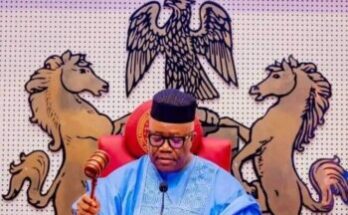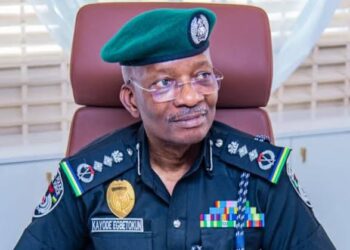Cultural identity denotes a person’s sense of belonging to a particular culture or group, and according to Mahatma Gandhi, “a nation’s culture resides in the hearts and souls of its people.” One way through which culture is expressed and accentuated is by organising cultural events, which bring people together to network, celebrate, make friends, and learn something new about themselves. They are also occasions to put aside all differences and focus on learning about each other and doing things.
The 2023 Bade Development Forum gathering at Bursari was by all standards eventful. Bursari has been a host to the ‘Amayam,’ an annual cultural event which celebrates good harvest and fishing at the end of a successful rainy season but has not seen such a crowd that thronged in on Sunday 7th May 2023 to witness the BDF event. It reminds me of the mammoth uncontrollable crowd that almost paralyzed protocol at the last Bade Fishing and Cultural Festival where the organisers had to hastily run the event. A state event that was generously funded, attended by Senate President Ahmed I. Lawan and Governor Mai Mala Buni of Yobe state and their host, Mai Bade HRH Abubakar Umar Suleiman II, you could imagine the levels of security and protocols but the crowd was something else. The organisers of the Busari 2023 event, one would be certain, did not anticipate a crowd as this big coupled with funding challenges, the cohort of ordinary folks, mostly youths, mentored by retired academics and civil servants and spurred by the goodwill of a people woken from its cultural ineptness to reclaim what is left of their dying culture.
The existential threat to the Bade tradition and the slumber of its custodians, notwithstanding, it is evident from the events mentioned above that the Bade people love their culture and even young persons among us, who neither speak nor have seen the beautiful culture in its prime, feel the affinity. It is natural for people to feel this way, Ruth Benedict said that “the crucial differences which distinguish human beings are not biological, they are cultural.” It involves learning about and accepting traditions, heritage, language, religion, ancestry, aesthetics, thinking patterns, and social structures of culture.
However, in a heterogeneous society, competing interests are almost always in play, therefore, promoting cultural agenda is viewed with suspicion by other groups. The BDF’s message was clear about its mission, to promote the Bade culture and peaceful coexistence with all people living in Bade and its neighbours for the overall development of the people and the land. It spoke through Mohammed Namaliya Dachia, who said, “Nobody should be afraid of the forum, and every person living in Bade is a member, in as much as we mutually respect our common boundaries.” He stressed that the Bade should know that every society is developed with the help of non-natives.
I wish the late Alhaji Mansur Ahmed (may his soul be in Janna) is alive to witness this cultural renaissance, which is in tandem with his philosophy. In 2010, while campaigning for the late Alhaji Mohammed Ago at Teburin Gambo in Sabon Garin, Gashua on the flagship of All Nigeria People’s Party (ANPP) for the chairmanship of Bade local government area he made this bold declaration, “We need to know and accept the reality that everybody living in this land is a Babade.” Though a political event and perhaps many would view the position as a political statement, it underpins the subconscious reality of our existence as a people living together in a community we all call our towns and villages; primarily, our politics should be focused on the betterment of our people and development of our communities.
The task before the BDF is, therefore, huge and herculean, it requires staying focused on the vision, working hard to ensure inclusion and reassuring the people of its honest objectives and, most importantly, its core value of restoring the Bade cultural heritage. It must be known that for a culture as endangered as ours to survive, it must be creative to appeal to generations of young persons. According to Johan Huizinga, “If we are to preserve culture we must continue to create it.” It is on this premise that Honourable Hassan El-Badawi, one of the oldest elders in the gathering and member of the first elite class of the emirate, advised that we must hold on to the culture both in practice and in spirit for it to flourish.
My takeaway from the event are many. There is a growing sense of pride and interest from young people in learning about the culture; the process of creating and recreating culture has begun and there is a deliberate attempt to ensure that the BDF is inclusive. Also, young persons are involved in the preparations, dances and other activities, the monetary contributions made by towns, groups and individuals were impressive and promised to ensure the sustainability of the programme.
However, the greatest setback towards recreating our culture is the lack of sufficient history and literature written by our historians, writers and poets as well as academics. Most of the research available was carried out by outsiders, though scholars in their rights, but still limited by their understanding of the language and the people. Even more worrying is the lack of standard alphabets that represent the sounds which are agreeable to the native speakers; it is time for our linguists to pioneer a review and or develop new alphabets and adopt the dialect which is suitable for formal communication.
In this, HRH Mai Bade Abubakar Umar Suleiman should commit himself to this project. He has achieved many feats but the transcendent legacy he will bequeath to the Bade people amidst the extinction debate is a thriving culture that will survive the predictions. I think his work is now made much easier by the emergence of the BDF, it’s a stakeholder with the capacity, energy and passion to champion this cause.
The BDF is an interesting development and a prayer answered as a formidable platform for promoting the Bade culture. We ought to accept that all our local events are dying such as the Avragrak Dagona, Amayan in Bursari and Fudak Yim no longer hold. The Bade Fishing and Cultural Festival is the only one left but striving on and off because of many reasons, primary among them is that, it has graduated to the status of a state event, we cannot hold it when we want to, the receding water level and the huge resources required to host it all add to the challenges.
Every people need to occasionally be in a festive mood. We need to celebrate good harvests as we bemoan droughts; we need to exchange pleasantries and laughter together; we need to share with our young ones, friends and neighbours our heritage as unconquered people. I was once so pained reading on an Influencer’s Facebook page about the Bade – Hadejia war where it was claimed that Sarki Maje the then ruler of Hadejia was not defeated in war by Mai Aji, that Maje was a villain and his people wanted to abolish him so they arranged the war and eliminated him. What I deduced from the distorted version is a deliberate attempt to deny Bade victory and the credit. Sadly, I searched if the war was documented but there seems to be no strong written evidence to prove it, however, my relief comes from the indisputable booty of that war, the presence of Maje’s royal band at the palace of Mai Bade.
It reminds me, again, of Hassan El-Badawi’s short but incisive speech on the occasion; “We need not only to love, be proud of who we are but also to be super confident about it.” The BDF is a promising platform we should embrace and strengthen to relaunch our cultural revival.
Abubakar, a journalist, writes from Damaturu, Yobe state.




